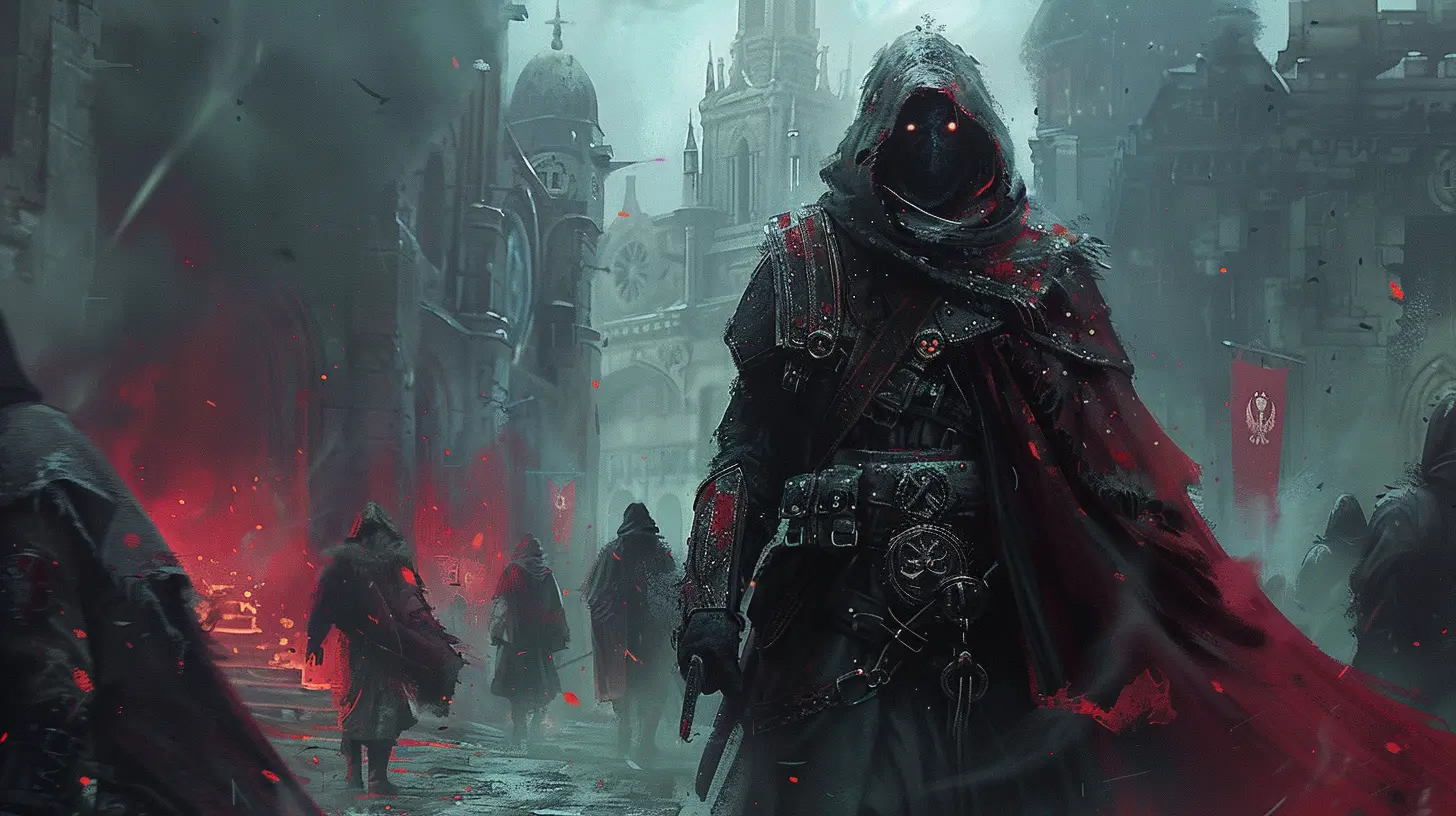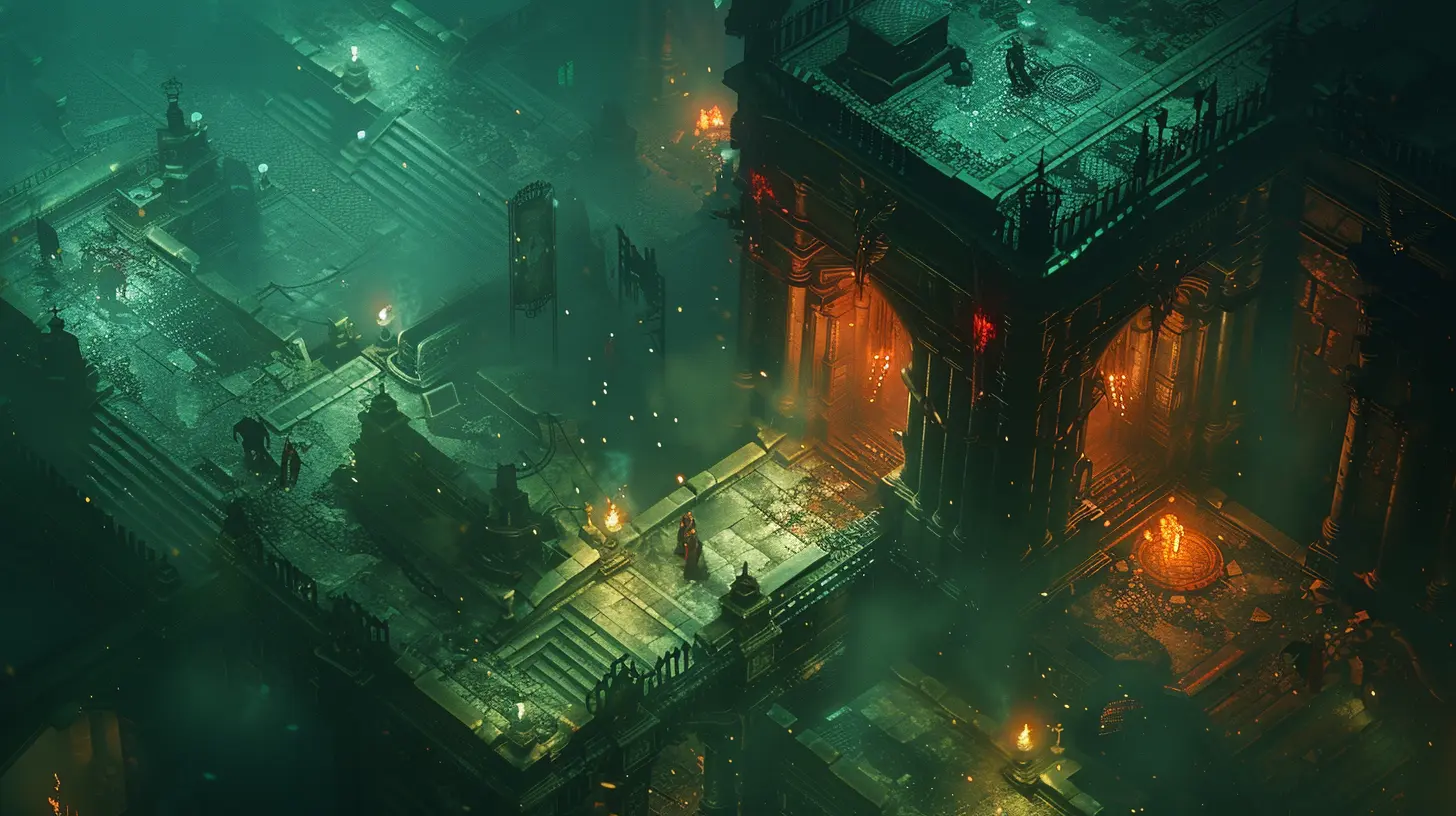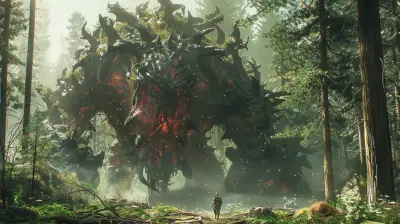Rogue-like Elements: What Permadeath Teaches Us About Replayability
25 June 2025
Have you ever played a game where one wrong move means game over? You know, the kind of game where your hard-earned progress vanishes into thin air because of one rogue enemy, a bad decision, or plain old bad luck? If you just nodded knowingly, then you’re probably familiar with rogue-like games. These are the games that thrive on punishing you, snatching victory out of your hands, and gleefully pressing the restart button for you. And yet, you keep going back. Why is that?
At the heart of rogue-like games lies a simple yet brutal mechanic: permadeath. Gone are the safety nets of autosaves or checkpoints. When you die, you start over—period. While it might sound maddeningly frustrating, permadeath has carved out an important niche in gaming, teaching us some incredible lessons about replayability, challenge, and sheer joy. Let’s dive into how this controversial mechanic shapes our gaming experiences and why it keeps us coming back for more.
What Is Permadeath, And Why Do We Love It?
Okay, let’s break it down. Permadeath is exactly what it sounds like—when your character dies, they don’t respawn. Your progress resets, your inventory is gone, and—brace yourself—all those hours you’ve sunk into the game? Poof. Gone in an instant.On paper, it sounds like the perfect way to ruin your day. Who willingly plays a game knowing that all their effort could be erased by a single mistake? Yet, for many of us, the answer is simple: it’s thrilling.
Permadeath adds weight to every decision you make. It’s like walking a tightrope without a safety net. Suddenly, every enemy encounter, resource allocation, and choice you make becomes a life-or-death gamble. And the stakes? They’ve never been higher. It’s this high-stakes tension that keeps us hooked.
But there’s more to it than just the adrenaline rush. Permadeath taps into something deeper—it teaches us to embrace failure as part of the process.
Failure Is Just the Beginning
Let’s face it: nobody likes failing. Yet, in rogue-like games, failure isn’t just inevitable—it’s encouraged. You’re meant to die. A lot. It’s part of the experience.Unlike many games that focus on making you feel like an unstoppable hero, rogue-like games subvert expectations by consistently humbling you. That boss you thought was a pushover? Nope. That treasure chest you didn’t check? Big mistake. These games don’t hold your hand, and they don’t apologize for it.
But here’s the thing: every death teaches you something. Maybe you died because you got too greedy and ignored your health bar. Or maybe you underestimated an enemy’s attack pattern. Each failure gives you a new piece of the puzzle, a chance to improve your strategy for the next run. Over time, you start seeing progress—not in the form of saved data, but in your own skill and decision-making. In a way, rogue-like games turn failure into a teacher and perseverance into a reward.
The Sweet Temptation of “Just One More Run”
Have you ever told yourself, “Okay, just one more run,” only to realize it’s 3 AM and you’ve lost track of time? Yeah, same here. There’s something insanely addicting about rogue-like games and their loop of dying, learning, and retrying.Part of what makes these games so replayable is their ability to keep things fresh. Most rogue-likes are built around procedural generation, which means the levels, enemies, and loot are randomized every time you play. That dungeon you explored on your last run? Gone. Now there’s a completely new layout waiting for you. This randomness ensures that no two runs are ever the same, keeping the experience exciting no matter how many times you start over.
But it’s not just the variety that pulls us in—it’s the promise of improvement. Every run feels like an opportunity to do better, get further, and maybe, just maybe, beat the game. It’s like chasing the horizon: no matter how many times you fail, the possibility of success keeps driving you forward.
Player Agency: It’s All on You
One of the most powerful aspects of rogue-like games is the sense of agency they give players. In these games, you are in control. There are no scripted events or predetermined outcomes to bail you out. Your success—or failure—rests squarely on your shoulders.And honestly? That’s refreshing. So many modern games are filled with hand-holding, tutorials, and overly forgiving mechanics. Rogue-like games strip all of that away and say, “Figure it out.” It’s a sink-or-swim approach that forces players to engage deeply with the game’s mechanics, test their limits, and forge their own path.
This level of agency ties directly into replayability. Every run is a chance to experiment, try new strategies, and see how far your skills and wits can take you. There’s no wrong way to play a rogue-like, but there’s always room for improvement. And that makes every retry feel meaningful.
A Rewarding Sense of Accomplishment
Here’s the thing about rogue-like games: they don’t just hand you victories. If you want to win, you’ve got to earn it. And when you finally make it to the end of the game—after countless hours of trial, error, and perseverance—there’s no feeling quite like it.It’s the gaming equivalent of climbing a mountain. The journey is grueling, and there are times when you want to quit. But when you reach the summit, the view is breathtaking. You look back on everything you’ve overcome, and you realize it was all worth it.
That’s the magic of rogue-like games. They make you work for your achievements, and in doing so, they make those achievements all the more rewarding. Whether it’s defeating an impossibly tough boss, unlocking a new character, or just surviving longer than you ever have before, every victory feels like a triumph.
Permadeath vs. Traditional Save Systems: Why It Works
Now, you might be wondering: why does permadeath work so well in rogue-like games when other games shy away from it? It all comes down to design.In most traditional games, permadeath would feel unfair and punishing because they’re not built around it. Losing hours of progress in a story-driven RPG? That’s just cruel. But rogue-like games embrace permadeath as a core mechanic. They’re designed to be played in short, self-contained runs, so losing everything doesn’t feel like a waste—it feels like a natural part of the experience.
Additionally, rogue-like games often include meta-progression systems. These systems allow players to unlock small, permanent upgrades or bonuses that carry over between runs, giving them a sense of progress even when they lose. It’s a brilliant way to balance the harshness of permadeath with a sense of forward momentum.
What Rogue-like Elements Teach Us About Life
Alright, let’s get philosophical for a second. Rogue-like games don’t just teach us about replayability—they teach us about life. Corny? Maybe. But hear me out.Life, like rogue-like games, is unpredictable. Sometimes you’ll make all the right choices and still lose. Other times, you’ll stumble into victory through sheer dumb luck. But no matter what, the only way to succeed is to keep trying, keep learning, and keep pushing forward.
Permadeath teaches us to let go of our fear of failure. It reminds us that setbacks are just opportunities in disguise. And most importantly, it shows us that the journey is just as important as the destination. Sure, you might lose all your progress, but the skills, knowledge, and memories you gain along the way? Those stick with you.
So the next time you’re frustrated with a rogue-like game, take a deep breath, hit that restart button, and remember: it’s not about how many times you fall; it’s about how many times you get back up.
Why We Keep Coming Back to Permadeath
At the end of the day, permadeath isn’t just a gimmick—it’s a testament to the enduring power of challenge, agency, and growth in gaming. Rogue-like games capture a kind of magic that’s rare in modern gaming: the ability to make every moment feel meaningful. Every decision, every mistake, every victory—it all matters. And that’s what keeps us coming back for “just one more run.”So whether you’re battling your way through Hades, exploring the caves of Spelunky, or braving the dangers of Dead Cells, take solace in the fact that permadeath isn’t the end. It’s just the beginning.
all images in this post were generated using AI tools
Category:
Game MechanicsAuthor:

Pascal Jennings
Discussion
rate this article
2 comments
Savannah Montgomery
Permadeath: the ultimate reminder that in gaming, much like life, sometimes you just have to hit restart and hope your next run goes better—no pressure, right?
November 25, 2025 at 5:21 AM

Pascal Jennings
Absolutely! Permadeath adds a layer of tension and learning, encouraging players to adapt and grow with each attempt—just like in life. It’s all about embracing the journey, not just the destination!
Samira McIntire
This article offers a thoughtful exploration of permadeath in rogue-like games. I appreciate how it highlights the balance of challenge and reward, enhancing replayability. It's fascinating to see how these elements not only test our skills but also teach resilience and adaptability. Great read!
July 1, 2025 at 3:53 AM

Pascal Jennings
Thank you for your thoughtful feedback! I'm glad you found the exploration of permadeath and its impact on replayability insightful. Your points about resilience and adaptability resonate strongly with the core of rogue-like games.


